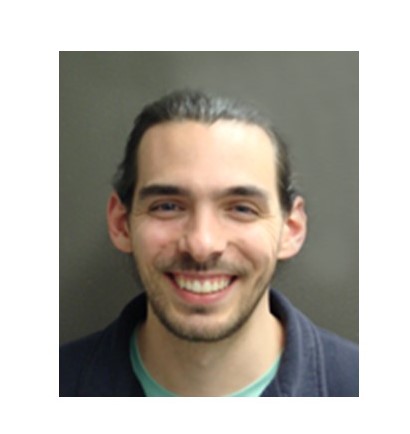
I feel a duty to research topics that will optimally benefit the rest of the population.
Name: John M. Howard, MSE Grad student/IREAP/Leite Group GRA
Hometown: Olney, MD
Graduation date: Spring 2020
Why did you choose to study at the University of Maryland?
Solving global warming requires sustained innovation in renewable energy research, and UMD has an outstanding community of scientists studying topics in energy generation and energy storage.
How did you learn about MSE, and why, exactly, did this major interest you?
After completing my undergraduate degrees in Physics and Mathematics, I wanted to pursue research in more applied research topics that could help solve large-scale problems. While working at NIST, my first job after college, I became aware of MSE after discovering the Materials Project. I was already planning on pursuing a PhD to acquire the credentials that would allow me to lead my own research, and the Materials Project led me to look into Materials Science programs. I like applying fundamental physical principals to solve practical problems, which is at the core of the MSE major.
You've conducted a great deal of research, and been published several times. Where does your interest in this research (i.e., solar cell technology) stem from?
Fundamentally, my interest in renewable energy stems from my upbringing, where my parents were early adopters of hybrid cars and educated me on the impact of anthropogenic (human-caused) climate change at a young age. I decided to engage in solar cell research given that global warming can be solved, but with the understanding that the solution’s arrival strongly depends on the rate of technological advancements. The more time we take to develop adequate solutions the larger the populations of climate change refugees, likely exacerbating the already high levels of socioeconomic disparity seen today. Generally speaking, I feel a duty to research topics that will optimally benefit the rest of the population.
Do you plan to continue related research post-commencement?
After commencement, I anticipate I will have a few projects to wrap up in the Leite Lab at UMD. Once I depart UMD, I’m excited to continue researching perovskite solar cells, but plan to shift my focus towards commercialization.
What has been your favorite MSE class, and why?
I really enjoyed ENMA 400 / ENMA 600 (Introduction to Computational Materials Science). Computational materials science combines a number of my academic interests (programming, physics, materials science) into a single subject. Further, I greatly appreciate that Professor Mo teaches the subject with a first-principles approach, which helps students link together basic physical principles at an atomistic level with bulk material properties. I definitely recommend it to undergraduate and graduate students alike, as familiarity with programming has become an essential skill and the computational will only prove more powerful over the coming years.
Engineering can be a complex major - do you have any advice for current students, or students considering the major?
• Please take the time necessary to be sure of your research interests. Once you determine this set of interests, it will be that much easier to fully commit to your research projects.
• I recommend calibrating your expectations of the PhD process by talking to graduate students in different research groups, at different stages of the PhD, and from diverse backgrounds. Graduate studies, especially research, are fundamentally different than those from undergraduate.
• You must take care of yourself, as the PhD is a long process. Be sure to make time for friends and family, as well as personal interests!
• Learn to ask well-researched questions and find the right people to ask. While your PhD bears your name, it relies greatly on an incredible community’s support and multigenerational wisdom.
What do you do for fun?
I try to be as active as possible, which currently means powerlifting training and pick-up basketball. When I have the time, I also enjoy rock climbing, soccer, table tennis, and hiking. I also enjoy playing music, having studied Jazz for over a decade now.
Any post-commencement plans?
Currently, I do not have anything set in stone. My overall plan for the next 2-3 decades is to start a technology transfer venture studio that helps inventors successfully commercialize their inventions at scale. I think there is still substantial progress to be made in the way we develop technologies that would enable a significantly larger number to make it to market, at 10-times the current pace.
Top